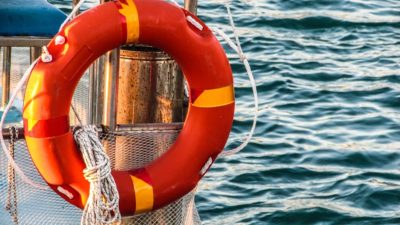Victoria Day Weekend, more commonly known as May 2-4 Weekend in Ontario, is not far off. We will see many of us packing up the family and heading to the cottage. It also means that we are also heading to the Beer Store to stock up on a 2-4 of beer or some flavourful coolers. Fun in sun is one of the best parts of summer in Ontario, but as we hear over and over again, it’s important to “Drink Responsibly”. While this message is often communicated when it comes to drinking and driving, it’s also important to remember not to operate a boat or watercraft while under the influence of alcohol.
How often do we see a group of guys heading out to go fishing with a cooler full of beer? Just the way we cleverly conceal that booze in a Thermos or water bottle, under the boat cushions, under the bow; most are aware that consuming alcohol in a boat is illegal and punishable by law, and yet…
“Impaired Boating is Impaired Driving” states an ad for Mothers Against Drunk Driving (MADD) posted on their website.
According to the Canadian Safe Boating Council (CSBC) website, alcohol is a factor in nearly 40% of boating accidents, which states; “Canadians simply do not understand that there are intensifying factors, known as “stressors”, such as sun, wind, waves and the rocking motion of a boat that can greatly increase the effects of alcohol on the water. The laws surrounding when a boater is considered impaired mirror provincial driving laws.” (www.csbc.ca)
The CSBC takes advantage of long weekends like May 2-4 to host North American Safe Boating Awareness Week (May 19th to 25th, 2018) aimed at informing and educating the public on the rules of safe boating, along with the consequences of not obeying the rules. The 2018 North American Safe Boating Awareness Week Campaign is ramping up for boating season. “Since 1995, this campaign has been the mainstay of boating safety outreach to the over 16 million people who recreate on Canadian waters each season,” states the website, www.csbc.ca. “At the core of the campaign are the five key messages that we have been consistently delivering to the boating community; wear a PFD or lifejacket, take a boating course, be prepared for both you and your vessel, be wary of the dangers of cold water immersion and don’t drink and boat.”
The last message—don’t drink and boat—is one the CSBC especially drives home during the annual Operation Dry Water, being held on the August long weekend. Just when summer is in full swing, the CSBC runs an education and enforcement campaign directed toward reducing alcohol-related accidents. Operation Dry Water began in 2013 to educate boaters about the potential risks of drinking and boating. During the long weekend, you are also likely to see heightened marine police enforcement on waterways throughout Ontario.
The sad truth is that most boating accidents cause catastrophic injuries, or worse, death. Legislation for operating under the influence while boating is similar to driving a motorized vehicle on roadways while intoxicated. However, boating accident claims are highly complex and differ significantly from motor vehicle claims. This is why if you or someone you love has been injured in a boating accident, it is prudent to seek the aid of legal counsel who are knowledgeable on the rules relating to boating accident claims and the nuances of the Marine Liability Act.
The Marine Liability Act covers liability for certain personal injuries related to boating accidents and dictates rules for apportionment of liability for injuries and fatalities, limitation periods, maximum payables and other important structures. As with all personal injury claims, boating accident claims are subject to a limitation period to commence an action, which is generally a period of two years. If the claim is not made within two years of the injury or loss, the injured party may lose the right to sue for damages.
Maximum liability for boating accident claims caused by the negligent operation of a boat are also outlined in the Marine Liability Act, and vary depending on the size of the craft and are dictated by the extent of injury or loss of life.
Reckless driving is yet another factor. More recent court decisions have ruled that the maximum liability limits may not apply in the case of a boat operator who acted recklessly and was aware that his or her reckless behaviour could likely cause injury to people or property. In Ontario, no-fault benefits are not available in boating accidents. In the case of boating accidents, it is imperative to seek the aid of an experienced personal injury and maritime lawyer. At Horowitz Injury Law, we can argue that the maximum liability provisions do not apply in such cases, and to seek the just compensation you and your family deserve. You may be entitled to compensation for damages, including but not limited to fractures, spinal cord injuries, catastrophic brain injuries and loss of life.
At Horowitz Injury Law, we have nearly 35 years of experience in successfully dealing with boating accident claims involving all types of watercraft, from jet skis and fishing boats to luxury yachts. Call us today for a free initial consultation at 416-925-4100.




